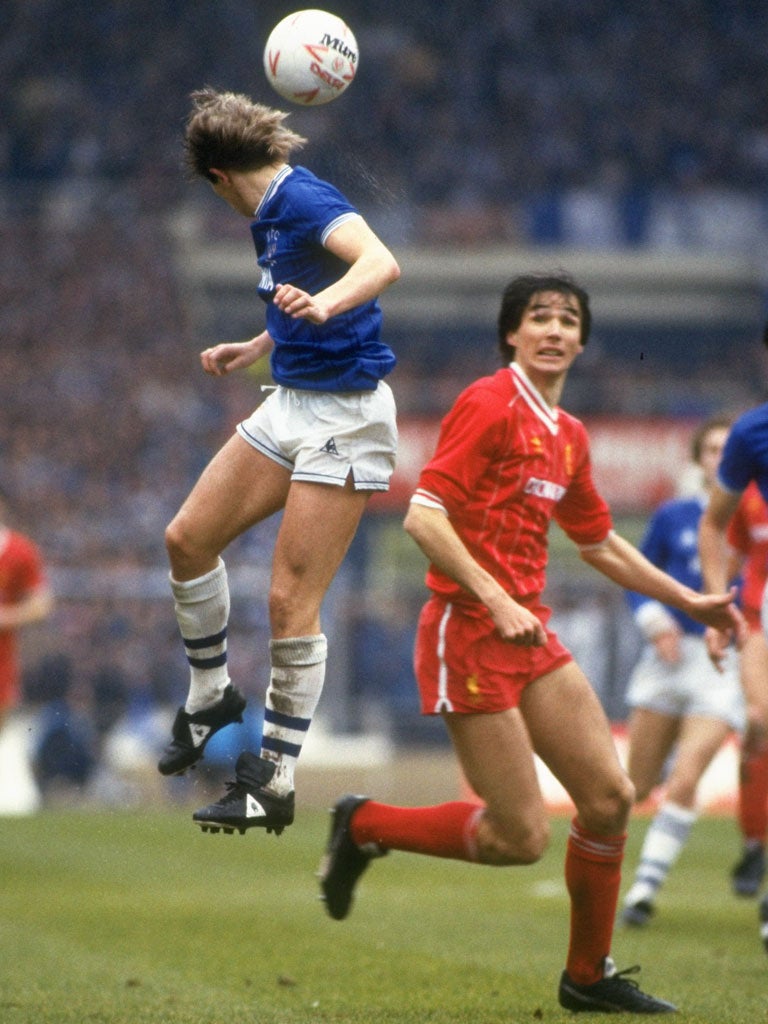As Liverpool and Everton prepare to meet at Wembley, some fans are urging the clubs to work together for a happier future.

"It felt like it was unique, it had the feeling that Merseyside had moved to north London for the day." Mark Lawrenson is remembering the day in March 1984 that Everton and Liverpool met at Wembley for the first time. It was the Milk Cup final, the first of that decade's three Mersey derby showpieces, and the day that 100,000 supporters sang "Merseyside" and two rival teams performed a joint lap of honour after a goalless draw.
It was an occasion captured by a Granada TV documentary titled Home and Away. The words of one of the men interviewed really summon the spirit of the time. As the coach heads south, one unemployed Liverpudlian muses hopefully: "People seeing Liverpool and Everton supporters together, they'll say, 'They can't all be bad, can they?'."
If that show of unity was as a response to the city's sense of disenfranchisement in Margaret Thatcher's Britain, it heralded the start of an era when Liverpool had the country's two best football teams and a famously "friendly derby".
According to Lawrenson, the former Liverpool defender, "it was a rivalry but there was no great animosity." Graeme Sharp, the ex-Everton striker, concurs as he recalls how "in those days Reds and Blues went down together" to Wembley, though he still grimaces at the memory of returning with Liverpool on the same plane and joining them on an open-top bus tour after the first of Everton's two FA Cup final losses to their neighbours in 1986.
Today, when Manchester derbies are potential title deciders and the Merseyside teams are scrapping over seventh place, these tales of togetherness sound like ancient history. Some Evertonians still remember how Howard Kendall's champions missed out on European Cup football twice after the 1985 post-Heysel ban but Sharp cites a more general trend. "If you look at football supporters, the culture has changed," he says, noting the increased partisanship prevalent today. Lawrenson adds: "In those days both teams were very close. You could argue they are now [position-wise] but the thing is Everton are crying out for investment and it is something they are struggling to get. Liverpool have got the money and have spent it"
The most obvious common ground between the two today is their failure to address the shared problem of what to do with stadiums which leave them trailing their competitors financially. Liverpool's 2010/11 matchday revenue at Anfield was £40.9m according to Deloitte – a sum dwarfed by Arsenal's £93.1m and Manchester United's £108.6m. Everton, despite Goodison Park holding only 5,000 fewer spectators than Anfield, generated £18.4m. It is against this backdrop that two rival supporters' groups, the Spirit of Shankly (SOS) and Keep Everton In Our City (KEIOC), have attempted to do something positive. In late December they unveiled a proposal for two "flagship" stadiums and commercial opportunities such as hotels and restaurants.
"Both clubs have got similar problems," adds Dave Kelly whose KEIOC group opposed Everton's aborted move to a new stadium outside the city limits in Kirkby. "The needs and aspirations may be different but they have similar problems they need to address."
It is eight years since Liverpool were granted permission by the city council to build on Stanley Park, and five since George Gillett promised a spade in the ground within 60 days of his and Tom Hicks' takeover. Bill Kenwright unveiled his plans to move Everton to King's Dock in 2001, and Tom Cannon, Professor of Strategic Development at the University of Liverpool Management School believes that with "a more progressive city council", Everton would now be in that planned waterside home and a more attractive prospect to buyers.
"There is a great unity there," Paul Gardner adds of the two fan groups and theirs is not the only proactive supporters' undertaking. The Trust Everton group is currently surveying supporters to measure interest in buying back the club's £15.3m Finch Farm training ground, sold in 2007 to raise funds. This venture has the backing of Supporters Direct and Labour MP Andy Burnham and would fit neatly the concept of an active Liverpudlian "diaspora", to quote a recent report on the Liverpool region by Lord Heseltine and Sir Terry Leahy. Exiled Scousers following the lead of a Tory peer; the Mersey derby is back at Wembley but the 1980s revival only goes so far.
Join our commenting forum
Join thought-provoking conversations, follow other Independent readers and see their replies
Comments